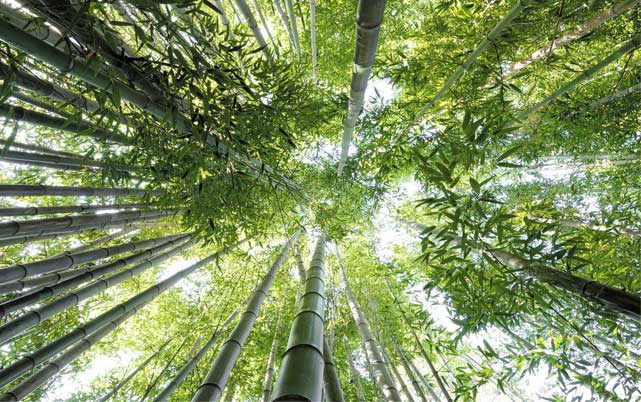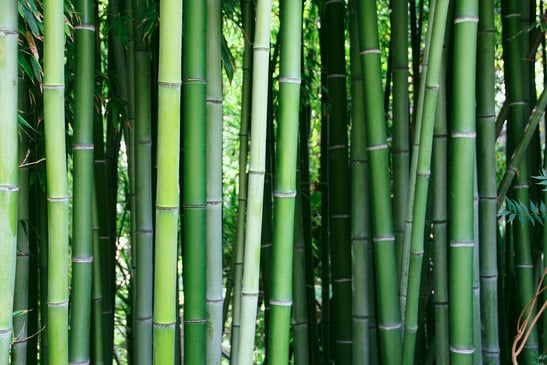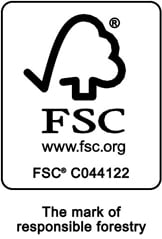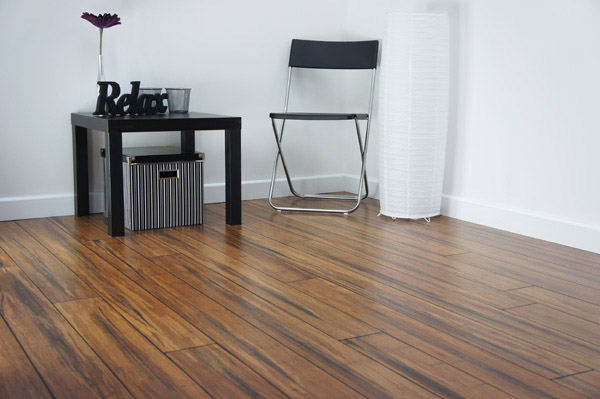Where does Bamboo come from?
Bamboo is a rapid growing grass that is native to China. It grows extremely quickly and reaches maturity in around five years, compared to hardwood trees that can take over two decades to reach maturity. Bamboo has self re-generating properties which mean that once it has been cut, it does not need to be replaced as it will continue to grow from the root. The rapid growth and regenerating properties of bamboo are making it a popular alternative to hardwood as a material for flooring because of its eco-friendliness and sustainability.

How is bamboo a sustainable product?
As bamboo is a fast growing, self re-generating grass, it is much more sustainable and environmentally friendly than more traditional hardwood flooring options. Generally, bamboo forests are harvested by hand, ensuring that the root of the grass is not damaged which then allows it to naturally self-propagate and continue to produce healthy and abundant crops for future harvests. The bamboo forests are sustained year on year as the entire forest is not harvested all at once. The bamboo plants are colour coded into different seasons and only cut once they have reached maturity (at approximately five years old). This means that healthy and mature crops of bamboo can be harvested every year in different sections of the forest. It is a common misconception that bamboo flooring has a high carbon footprint because it is shipped to Europe from China.
The reality is that bamboo is native to China and the flooring is manufactured in China so it is only travelling once, compared to most hardwood flooring where the trees are grown and felled in Europe, shipped to China to be manufactured and then shipped back to Europe to be sold, doubling the travelling.

How do I know whether my bamboo flooring is truly sustainable?
To make sure that the particular type of bamboo flooring that you purchase is truly sustainable, you should look for an FSC (Forest Stewardship Council) certificate. The FSC is a global organisation that is devoted to the responsible management of forests around the world. They ensure that the natural biodiversity and ecological processes of the forests are preserved during the harvesting and manufacturing of the bamboo. If the company selling the flooring has an FSC certificate for that particular type of flooring, it means that every business involved in the chain of production, (including the forest owner, farmer, manufacturer and seller) share the FSC values and ideals and have also been awarded an FSC certificate. If you purchase bamboo flooring which has been FSC certified then you can be assured that it is not adding to the destruction of the world’s forests as it is being produced in such a way that a healthy ecological balance is maintained and rare animals and plants are protected, whilst local workers are trained and employed to run the forests. The FSC also ensures that the forests are sustained so that future generations are able to enjoy their natural benefits.

What are the eco-friendly benefits of bamboo flooring?
• Bamboo is a rapid growing grass which can be harvested every five years, compared to hardwood trees which can take over two decades to reach maturity.
• The bamboo root has regenerating properties so it does not need to be re-planted after a harvest.
• Bamboo forests are harvested by hand to cause minimal damage and disruption to the surrounding area.
• As bamboo grows quickly and naturally in China, there is no need for fertiliser or irrigation systems to be used.
• Bamboo is grown in China and is manufactured in China, which reduces the carbon footprint of the materials travelling twice.








